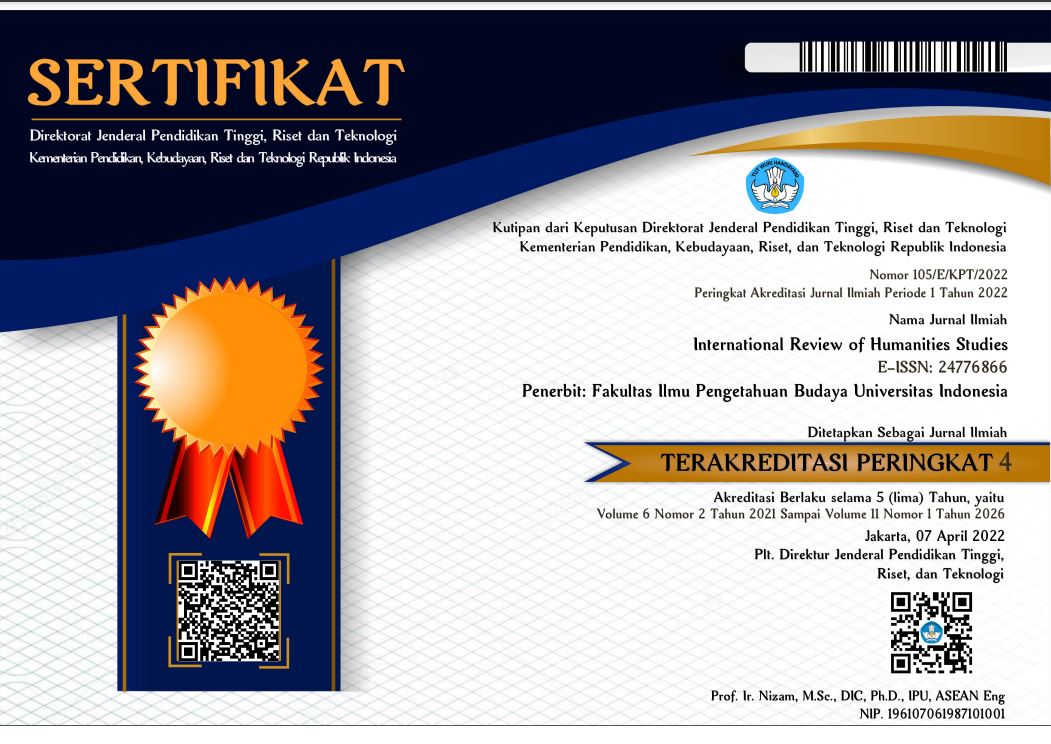International Review of Humanities Studies

Abstract
Humans construct various strategic actions and produce cultural products to overcome life problems during certain situations. In the context of the modern nation-state, regulations which are issued by the government in a country and are aimed to help members of their society to overcome life's problems can be called a cultural product. In response to the Belt and Road Initiatives/BRI initiated by the PRC government, the government under President Joko Widodo in the first period issued a Maritime Axis program aimed at building a number of infrastructures, ranging from ports, toll roads, airports, and industrial zones spread throughout Indonesia. This program is implemented under several regulations issued to facilitate the implementation of foreign investment absorption and development of various infrastructures with the aim of improving the economy, alleviating poverty, and reducing the number of unemployment. This article aims to analyse Indonesian government's response to Chinese investment in the BRI scheme which is related to cultural resilience factors. This article argues that in responding to BRI to develop infrastructure and industry, Indonesian government has not yet considered the factors of community cultural resilience. This article analyses six regulations issued by the government to regulate Sei Mangkei Special Economic Zone. Moreover, it uses a case study approach by observing the Sei Mangkei Special Economic Zone, to reveal the cultural resilience of the local community while facing investment inflows along with the impacts.
Recommended Citation
Muas, R. Tuty Nur Mutia Enoch; de Archellie, Reynaldo; and Darmojuwono, Setiawati
(2019)
"INDONESIA’S CULTURAL RESILIENCE RESPONSES TO CHINA’S BELT AND ROAD INITIATIVES: SEI MANGKEI SEZ AS A CASE STUDY,"
International Review of Humanities Studies: Vol. 4:
No.
3, Article 11.
Available at:
https://scholarhub.ui.ac.id/irhs/vol4/iss3/11
Included in
Arts and Humanities Commons, Business Commons, Life Sciences Commons, Social and Behavioral Sciences Commons


